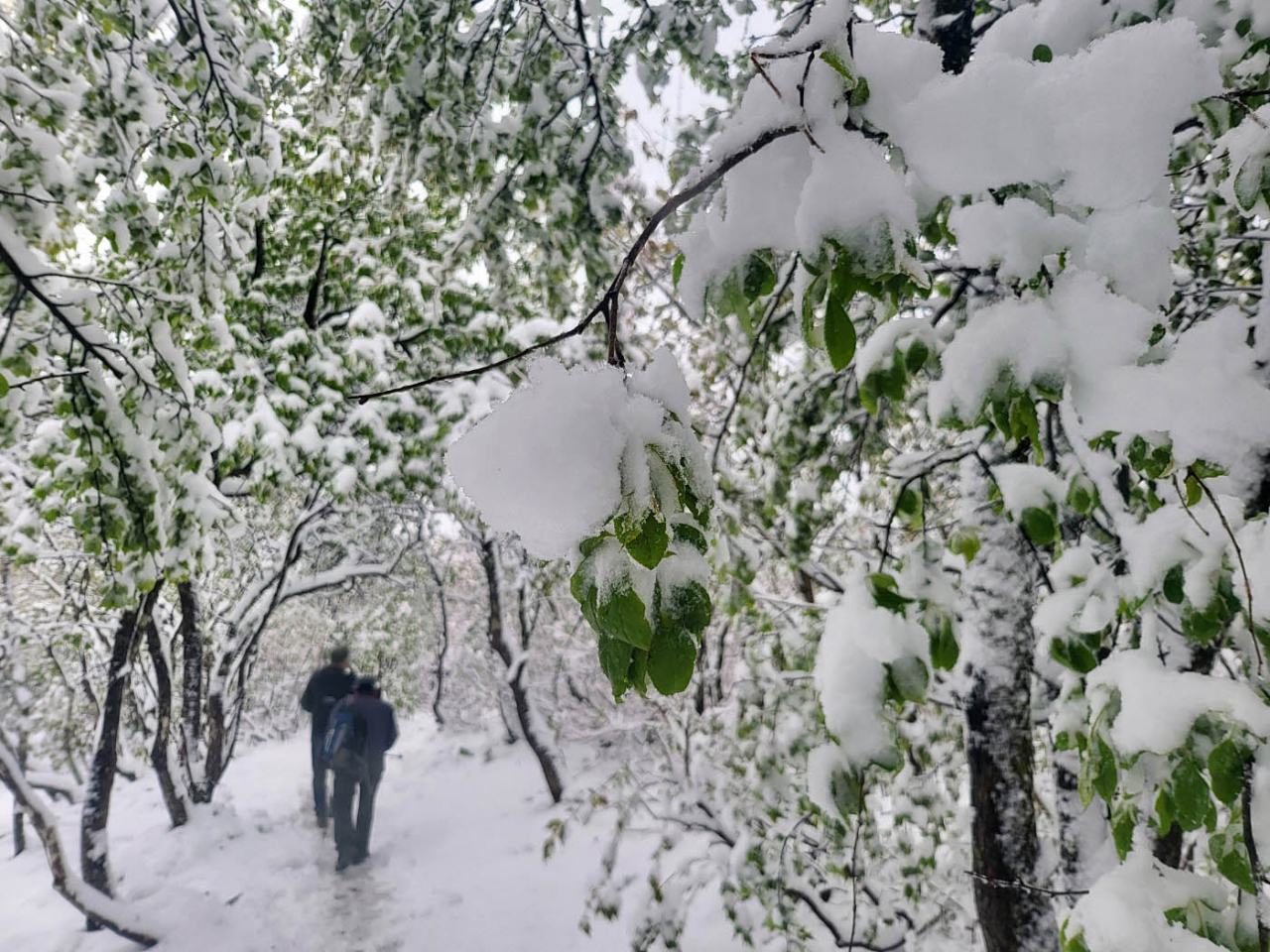 |
Parwangsan in Pyeongchang-gun, Gangwon Province, is covered in snow Thursday morning following a heavy snow warning issued Wednesday. (Yonhap) |
In an unexpected turn of weather events, with snow reaching unforeseen depths and blanketing regions, the national weather agency issued a heavy snow warning for the mountainous areas of northern Gangwon Province as of Wednesday evening.
This marked the first time in approximately 30 years -- since 1994 -- that the agency has issued such a warning in mid-May, underscoring the unprecedented nature of this weather event.
“While heavy snow warnings have been issued in May in the past, the KMA has never issued a heavy snow warning in mid-May since 1994, when special weather records were first kept,” an official at the Korea Meteorological Administration told The Korea Herald.
Heavy snow warnings are activated when meteorologists anticipate snow accumulation of 5 centimeters or more within 24 hours.
Wednesday’s heavy snow is largely due to cold air that flew into the Korean Peninsula from the north at minus 25 degrees Celsius. Cold winds, which are rarely seen in mid-May are predicted to have frozen the rain clouds that were passing over Korea.
The KMA said more snow was anticipated to fall in highland and other mountain areas of northern Gangwon until Thursday morning. Up to 1 to 5 cm of snow were expected to accumulate in most mountainous regions, while areas above 1,000 meters were expected to see more than 7 cm of snow.
There have been instances of heavy snow warnings being issued in May in the past, with the latest one issued in mountainous areas of central and northern Gangwon Province on May 1, 2021.
It is common to see mild amounts of snowfall in the mountainous regions of Gangwon in May, as cold air flows into the upper atmosphere and descends into the lower atmosphere, according to the KMA.
According to the KMA’s past snowfall records, Mount Seorak saw up to 1 cm and 0.4 cm of snow on May 1 and 6, 2023. It also issued a heavy snow warning between May 1 and 2 in 2021, when Daegwallyeong and Guryongnyeong recorded 1.6 cm and 18.6 cm of snow, respectively.
Meanwhile, due to cold air from the north, Thursday also recorded the coldest day in May in 15 years, with temperatures being 2 to 5 C lower than Wednesday’s average temperatures. Morning temperatures are expected to range between 6 C to 12 C, with daytime temperatures ranging between 17 C to 23 C.







